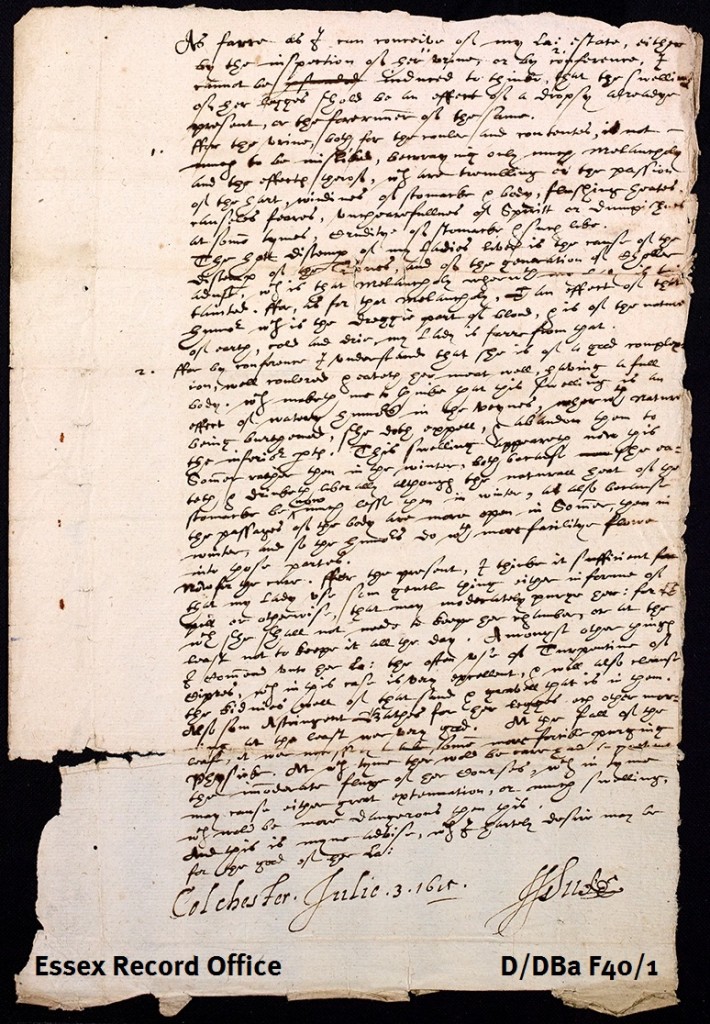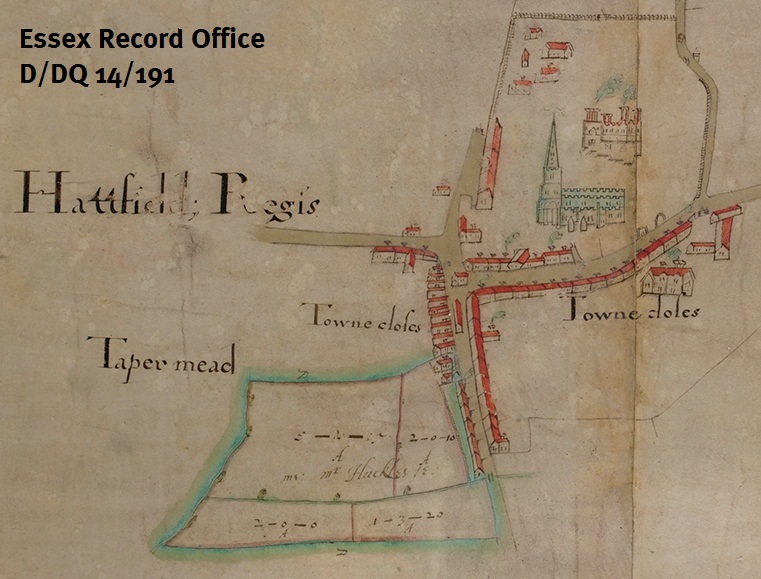Each month one of our Archivists selects a document to highlight. This month it is the turn of Chris Lambert – his chosen document will be on display in the ERO Searchroom throughout July 2015.
It was July 1615. Joan, Lady Barrington, of Hatfield Broad Oak was unwell, and she sought medical advice. That advice, from Dr Duke of Colchester, survives amongst the Barrington family papers in the ERO (D/DBa F40/1).

The advice of Dr Duke of Colchester to Lady Barrington of Hatfield Broad Oak, July 1615 (D/DBa F40/1)
Reassuringly, Duke did not believe ‘that the swelling of her legges shold be an effect of a dropsy’ (what might now be understood as heart disease). Lady Barrington’s urine suggested to Duke ‘only much melancholy’. The effects of melancholy were extensive, including ‘windiness of stomacke & body, flushing heates, [and] causeless feares’, but Duke did not think them dangerous.
Beyond that, Lady Barrington was ‘of a good complexion, well coulered & eateth her meat well, having a full body’. For Duke, this was evidence that the swelling was simply ‘an effect of watery humours in the veynes, wherewith Nature being burthened, she doth expell & abandon them to the inferiour partes’. The condition appeared in summer because Lady Barrington ‘eateth & drinketh liberally although the naturall heat of the stomacke be now much lesse then in winter, as also because the passages of the body are more open in sommer … and so the humours do with more facilitye flowe into those partes’. The ancient Greek doctrine of the four bodily humours, associated with the four seasons, still ruled 17th-century medicine. In 1615, William Harvey’s revolutionary discovery of the circulation of the blood still lay 13 years in the future.

Hatfield Broad Oak, seen in a contemporary map (D/DQ 14/191). Lady Barrington’s home at the Priory House appears just above the church.
Duke’s prescription was a moderate purge, the ‘often use of turpentine of Cipres [Cyprus]’, and frequent ‘astringent bathes’ for the patient’s legs. But ‘at the fall of the leafe, it wer necessary to take some more forcible purging physicke’. The humours of the body being un-balanced, purging would restore them. Perhaps it did: Lady Barrington lived on until 1641.
